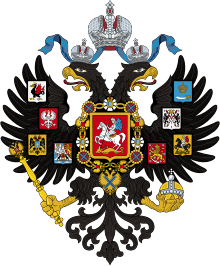Chopard
 | |
| Privately held company | |
| Industry | Watch manufacturing |
| Founded | 1860 by Louis-Ulysse Chopard |
| Headquarters | Geneva, Switzerland |
Key people | Caroline Scheufele, Co-President; Karl-Friedrich Scheufele; Co-President |
| Products | Wristwatches, jewellery |
| Revenue | more than CHF 800 million (2013)[1] |
| Website | www.chopard.com |
.jpg)
Chopard is a Swiss watchmaker founded in 1860 by Louis-Ulysse Chopard in Sonvilier, Switzerland, originally known for making ladies' watches and pocket watches.[2] In 1963, Chopard was sold to Karl Scheufele, a watchmaker from Pforzheim, Germany.[3] The Scheufele family have owned the company up to the present day. The company is headquartered in Geneva and has a site in Fleurier, Canton of Neuchâtel that manufactures watch movements.[4]
History
1860–1963
The company founder, Louis-Ulysse Chopard (May 4, 1836 – January 30, 1915) was a Swiss watchmaker who grew up in Sonvilier, a town near Bern. In 1860, he established his L.U.C manufacturing company in Sonvilier, having observed that it was more profitable to market the finished watch than to just make the mechanical movement. Chopard began to market his watches throughout Europe and became supplier to Tsar Nicholas II of Russia.[1][5]
After Louis-Ulysse's death in 1915, the company was taken over by his son Paul-Louis and grandson Paul-André. The company specialised in making pocket watches and ladies’ wristwatches. In 1921, Paul-Louis moved the company operations to a larger town Chaux-de-Fonds in the Canton of Neuchâtel. In 1937, at that time a company of 150 employees, the company relocated to Geneva. This enabled the movements made by the company to be certified with the Geneva Seal a mark only applied to watch movements made in the Canton of Geneva.[4] Paul-André took over the company in 1943.[1]
In 1963, having no children wishing to continue in the business, Paul-André Chopard sold it to Karl Scheufele III, a German goldsmith and watchmaker from Pforzheim, who was seeking a watch movement manufacturer exclusively for his own business.[1][5]
1963–2010
In 1974, the Chopard factory moved from the center of Geneva to Meyrin-Geneva and in 1976 the company started making watches that contained its signature free-floating diamond behind sapphire glass. In the 1980s, the company expanded into making sports watches for men and diamond jewellery for women.[5]
In 1996, the company established its own complete watch movement manufacturing facility in Fleurier, in the Swiss Canton of Jura. Prior to that time, all Chopard's movements had been assembled from third party components. The movements made in Fleurier were intended for the high end watches in the Chopard range.[4]
In 2010, the company celebrated its 150th anniversary, by which time the company's estimated sales were €550 million in total (of which €250 million in watches) with about 100 stores around the world.[6]
Present Day
In 2014, Chopard had sales of CHF800m (US$915m) per year, 2000 employees worldwide, of whom 900 were working in Switzerland.[1][4] The European Patent Office lists more than 20 references to Chopard since 2002.[7]
Chopard is corporate partner of:
- The Mille Miglia car rally since 1988.[8]
- The Cannes Film Festival since 1998, sponsoring the Trophée Chopard prize and making the Palme d’Or trophy.[4][5]
- The Historic Grand Prix of Monaco as official timekeeper since 2002.[9]
Since 2013, Chopard has been promoting its high end products as using ethical and sustainable gold, though using this for all its products remains a long-term objective.[10][11]
See also
References
- 1 2 3 4 5 Eric J. Lyman (July–December 2014). "Interview with Karl Friedrich Scheufele" (PDF). EY Exceptional. Retrieved 29 June 2014.
- ↑ "Brand History: Chopard". Luxos. 30 April 2010. Retrieved 16 March 2016.
- ↑ Elizabeth Doerr (11 December 2013). "Chopard Resuscitates Historical Watchmaker To Create Ferdinand Berthoud Brand". Forbes. Retrieved 16 March 2016.
- 1 2 3 4 5 Nicholas Foulkes (6 June 2014). "Profile: Caroline and Karl-Friedrich Scheufele, Chopard co-presidents". The Financial Times. Retrieved 16 March 2016.
- 1 2 3 4 "History of Chopard". Fondation de la Haute Horlogerie. Retrieved 16 March 2016.
- ↑ Chevalier, Michel (2012). Luxury Brand Management. Singapore: John Wiley & Sons. ISBN 978-1-118-17176-9.
- ↑ "Search result list for Chopard". European Patent Office. Retrieved 30 June 2014.
- ↑ "Chopard and the 2014 Mille Miglia". Forbes. 19 May 2014. Retrieved 8 June 2014.
- ↑ "Photos from Monte Carlo". Forbes. Retrieved 8 June 2014.
- ↑ Alex Doak (6 June 2014). "Ethical gold: Chopard wants to start a 'Fairmined' revolution". The Financial Times. Retrieved 16 March 2016.
- ↑ "Chopard's Journey to sustainable luxury moves to Cannes". Laurie Kahle. Retrieved 16 May 2014.
